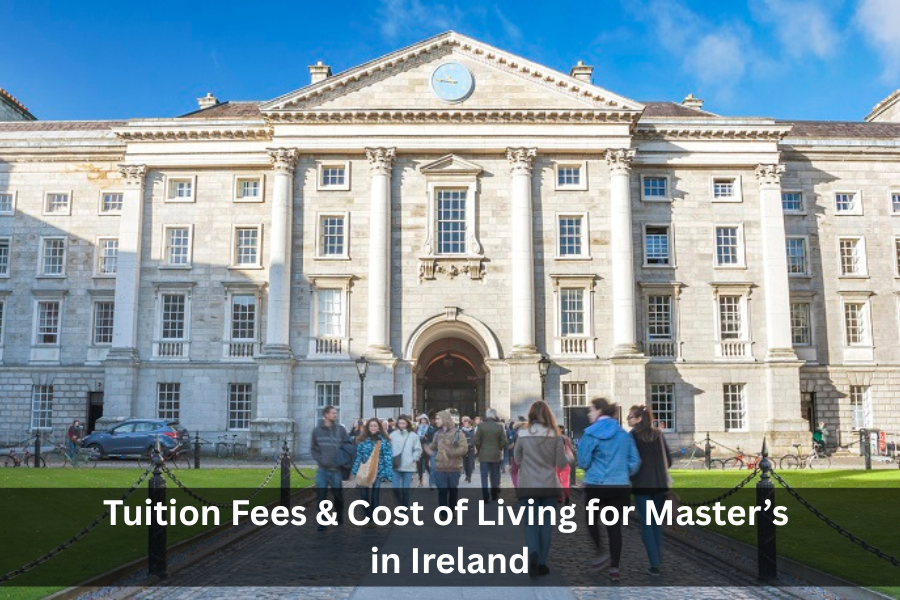
Ireland continues to gain popularity among international students pursuing a Master’s degree. Known for its world-class universities, trending courses, and post-study work opportunities, it offers both academic excellence and global employability.
However, one of the most crucial aspects students must understand before applying for a Master’s in Ireland is the financial commitment, from pre-application costs to tuition fees and monthly living expenses.
So, read this blog for a comprehensive breakdown of all major costs associated with studying a Master’s in Ireland. The insights in this blog will help you plan confidently and avoid last-minute, unpleasant surprises.
Understanding the cost of living and studying in Ireland
Studying abroad is an exciting prospect, but it comes with its financial realities that you must be aware of. If you are planning to pursue a postgraduate degree in Ireland, your total cost will typically fall into three categories:
- Pre-application expenditure – costs related to exams and university applications while you are still in your home country
- Tuition fees – the academic cost, depending on your course and university paid during the duration of the program
- Living expenses – day-to-day costs while staying in Ireland
Each of these aspects plays a vital role in planning your overall overseas education budget.
Pre-application expenditure in Ireland
Before you get admitted to an Irish university, you will incur some one-time costs related to taking standardized tests and college applications. These will vary based on course requirements and how many universities you apply to.
Below are the typical pre-application costs you are likely to incur:
| Cost type | Estimated cost (EUR) | Estimated cost (INR) |
| IELTS / TOEFL | €185 – €280 | ₹18000-₹27000 |
| GRE / GMAT (if required) | €200 – €300 | ₹20000-₹29000 |
| Application fee per university | €35 – €100 | ₹3500-₹10000 |
Please note: While some Irish universities waive application fees, most top programs will charge applicants a small fee ranging between €35 and €100. If you are applying to 4 or 5 universities, these costs can quickly add up. Exams like IELTS and GRE are typically valid for two years.
Tuition fees for Master’s in Ireland
Irish universities offer a wide range of postgraduate programs across disciplines such as Business, Engineering, Data Science, Public Health, and more.
Tuition fees vary depending on the course and university. Furthermore, business or tech-related degrees often cost more. The following table entails a list of universities and programs in Ireland, along with average tuition fees in Euros.
| University | Program | Average tuition fee (EUR) |
| Trinity College Dublin | Masters in Business Administration(MBA) | €18,300 approximately |
| University College Dublin | MSc in Marketing | €23,170 approximately |
| University College Cork | MSc in Analysis of Pharmaceutical Compounds | €22,585 approximately |
| Maynooth University | MA in Accounting | €17,226 approximately |
| Dublin City University | MSc in Astrophysics & Relativity | €16,269 approximately |
To explore all available postgraduate programs by course and university, visit our Masters in Ireland programs page. You’ll find detailed tuition info, course lengths, and eligibility.
Cost of living in Ireland
In addition to academic fees, students must prepare for monthly expenses while living in Ireland. These include housing, food, transport, internet, mobile plans, and personal items. Your total cost of living will depend on your location and lifestyle.
This section will help you learn about the monthly cost of living in the popular cities of Ireland, as well as the typical monthly expense breakdown to help you do the right monetary calculations.
- City-wise living cost (Monthly)
| City | Estimated monthly cost (EUR) |
| Dublin | €1,400 – €1,900 |
| Cork | €1,300 – €1,800 |
| Galway | €1,100 – €1,500 |
| Limerick | €1,100 – €1,500 |
Please note: If you are aiming to reduce your living costs, consider choosing a university outside Dublin. Cities like Limerick and Galway offer excellent programs with relatively affordable accommodation.
- Monthly Expense Breakdown
Here’s a breakdown of common monthly expenses that you can expect during your study-abroad journey in Ireland:
| Category | Estimated cost (EUR) |
| Rent (shared/private) | €800 – €1,200 |
| Food and groceries | €80 – €100 |
| Utilities | €200 – €280 |
| Transport | €120 – €122 |
| Miscellaneous | €60 – €70 |
Pro tip: Use a student Leap Card to reduce transport costs in cities like Dublin and Cork. University accommodation can also help you save on utilities and rent.
Also, note that the costs mentioned above are for your reference only. The actual costs may vary depending on your requirements, lifestyle, and other key factors.
How to manage costs and save during your Master’s in Ireland
1. Set a monthly spending plan: Managing your expenses begins with planning. Allocate a fixed amount each month for essentials like rent, food, transport, and phone bills.
Use online tools and apps to track your spending and avoid overshooting your budget.
2. Take full advantage of student offers: Your student card isn’t just for ID! It opens doors to plenty of savings.
From discounted bus and train fares with the Student Leap Card to offers on tech, groceries, cinema, and more, there is a deal around every corner if you keep an eye out.
3. Cook more, order less: Food can take a big bite out of your budget if you rely too much on takeout. Learning to cook simple meals at home can save you a significant amount each month.
Supermarkets in Ireland offer affordable groceries. Furthermore, cooking in batches can stretch your budget further.
4. Look for budget-friendly housing: Accommodation is likely your biggest expense, but there are ways to cut back. Explore university residences or shared apartments to keep rent manageable.
Choosing a place that is closer to your campus could also help reduce transportation costs.
Work part-time to ease the load: International students in Ireland are allowed to work up to 20 hours per week during the academic term.
Taking up a part-time job in a retail chain, hospitality, or on campus can help cover your living expenses and ease financial stress. Just be sure it aligns with your visa rules! Here are some opportunities that international students have leveraged in the past:
| Job Type | Typical Pay (EUR / hour) | Description |
| Retail Assistant | €12 – €14 | Work in shops, supermarkets, or department stores. |
| University Campus Jobs | €12 – €15 | Work in call centers or online support roles, often part-time or evening shifts. |
| Research Assistant | €14 – €20 | Support faculty with academic research or data analysis. |
| IT Support / Tech Help | €13 – €18 | Solve basic tech issues or maintain lab equipment. |
Final Thoughts
A Master’s in Ireland is not just an academic choice; it’s a career investment! With top-ranked programs, a welcoming environment for international students, and a graduate visa route that allows you to stay back and work, Ireland continues to be a wise choice.
However, understanding the complete financial picture is essential. Between pre-application costs, tuition fees, and monthly living expenses, you need to plan your finances meticulously.
With the right planning and support from scholarships or part-time work, it’s a manageable and worthwhile investment.
For more support on scholarships, visa guidance, accommodation, and student life, explore our complete Study in Ireland guide.
Planning to study abroad? Explore student life, admission requirements, and top universities in top study abroad destinations to make the best choice for your future.
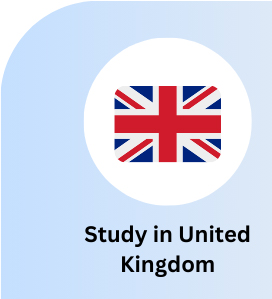 |
 |
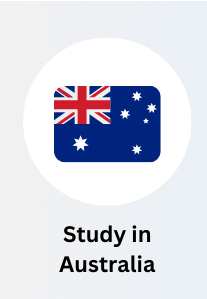 |
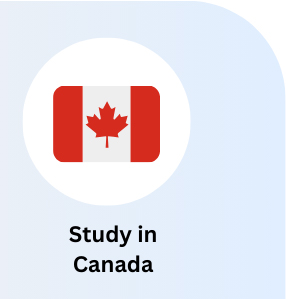 |
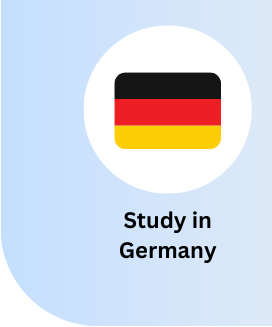 |
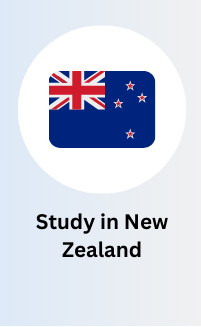 |
 |
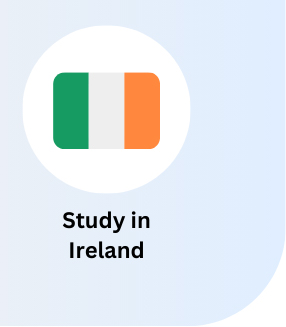 |

